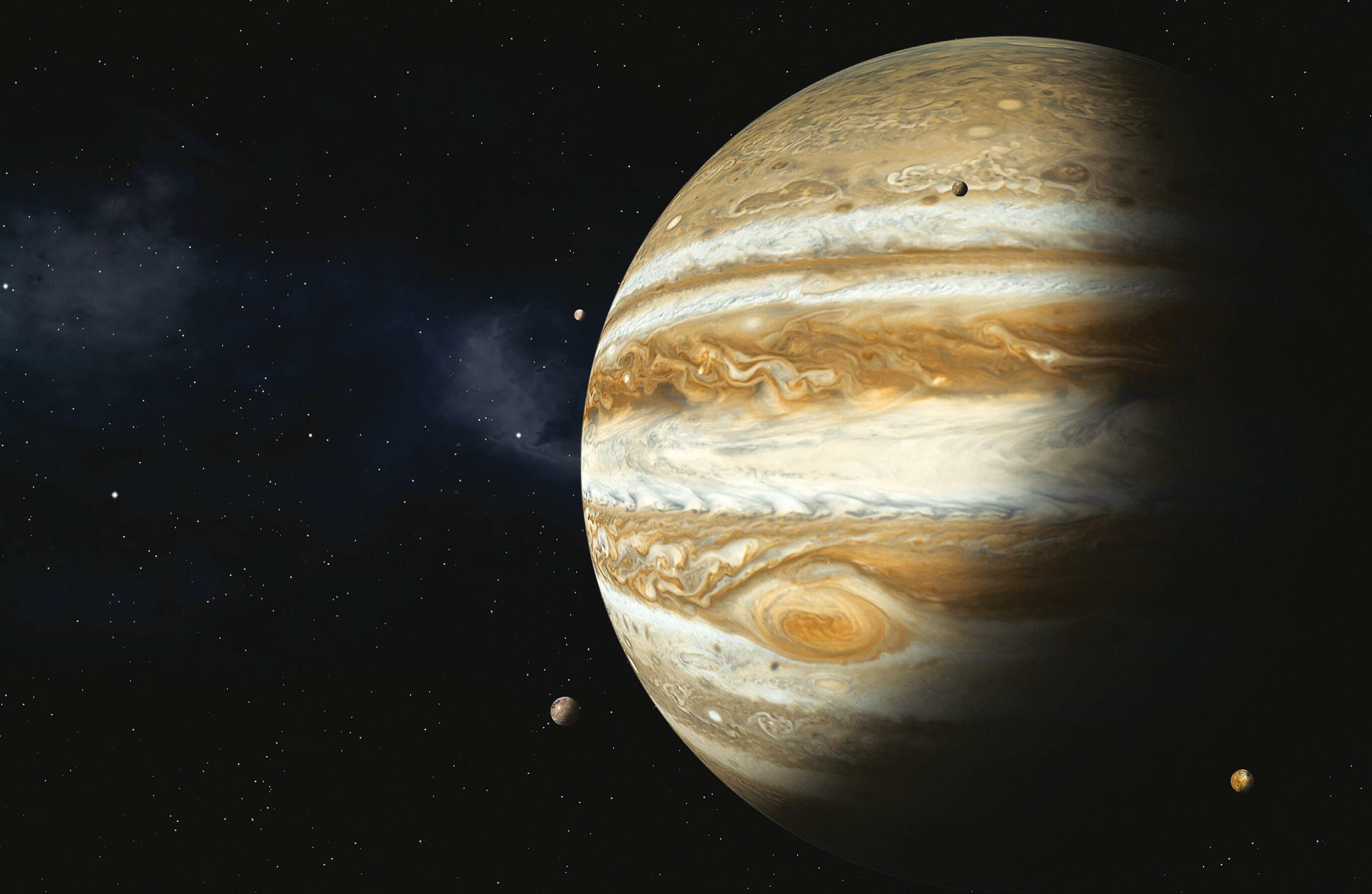Intentar ORO - Gratis
JUPITER KING OF PLANETS
The Week Junior Science+Nature UK
|Issue 79
Blast off with BBC Sky At Night's Ezzy Pearson as she takes you on a voyage to explore the largest planet in our solar system.
-

Large enough to fit every other planet inside, it’s no surprise Jupiter holds the title of “King of the Solar System”.
Last year the European Space Agency sent the Jupiter Icy Moons Explorer (JUICE for short) on the long journey towards the planet, and this October NASA will launch the Europa Clipper to join it on its way. The trip will take five and a half years, because Jupiter lies around 484 million miles from the Sun – five times further away than Earth.
With its century-long storms, deadly radiation and a glittering assortment of moons, the solar system’s largest planet is a fascinating – and deadly – place to visit.
 A giant gassy ball
A giant gassy ball Jupiter is around 86,881 miles wide and it contains more than twice as much mass as every other planet put together. The more material a planet has, the stronger its gravity. So, if you stood on a set of scales on Jupiter you would be nearly two and a half times heavier than you are on Earth. You wouldn’t be any bigger – the planet is just pulling down on you more.
You’d have a tough time standing anywhere on Jupiter though, because it’s a gas giant. The solar system’s inner planets – Mercury, Venus, Earth and Mars – are mostly made of rock, but Jupiter is entirely made of its atmosphere.
The planet is about 90% hydrogen gas, the lightest known element in the universe. Most of the remaining 10% is helium, the gas used to fill balloons so they float. There are also trace amounts of other chemicals, such as water and ammonia (which is used on Earth to make plant fertilisers), which form Jupiter’s clouds.
Esta historia es de la edición Issue 79 de The Week Junior Science+Nature UK.
Suscríbete a Magzter GOLD para acceder a miles de historias premium seleccionadas y a más de 9000 revistas y periódicos.
¿Ya eres suscriptor? Iniciar sesión
MÁS HISTORIAS DE The Week Junior Science+Nature UK

The Week Junior Science+Nature UK
FIGHTING THE FREEZE
Claire Karwowski uncovers nature's wildest ways of fighting the winter freeze.
6 mins
Christmas 2025
The Week Junior Science+Nature UK
Cook up bioplastic decorations
Make your own eco-friendly ornaments.
1 min
Christmas 2025

The Week Junior Science+Nature UK
Should we switch off Christmas lights?
They brighten up the festive season, but they can have a negative impact on the environment.
1 mins
Christmas 2025
The Week Junior Science+Nature UK
Three spectacular illuminations
Glow Wild, Wakehurst
1 min
Christmas 2025

The Week Junior Science+Nature UK
THE LAST DAYS OF POMPEII
For the first time, an immersive exhibition about the destruction of the ancient Roman city of Pompeii has opened in London.
1 min
Christmas 2025

The Week Junior Science+Nature UK
Wildlife watch
Jenny Ackland unveils a winter wonderland of natural delights this festive season.
1 mins
Christmas 2025
The Week Junior Science+Nature UK
Make Snow globes
Create the perfect Christmas gift.
1 min
Christmas 2025

The Week Junior Science+Nature UK
Maggie Aderin-Pocock
Meet the scientist \"blasting off into space\" at the Christmas Lectures.
3 mins
Christmas 2025
The Week Junior Science+Nature UK
Make vegan eggnog
Whip up a dairy-free festive winter warmer that is perfect for cold nights.
1 min
Christmas 2025

The Week Junior Science+Nature UK
Octopuses
Meet the colour-changing, shape-shifting, fortune-telling aliens of the seas.
2 mins
Christmas 2025
Listen
Translate
Change font size
